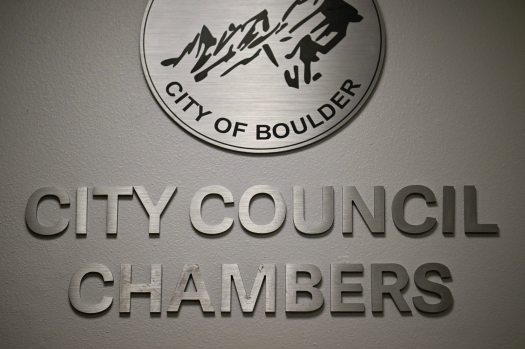Top Stories
Boulder Council Enacts Urgent Two-Year Gray Water Ban

UPDATE: The Boulder City Council has just enacted a significant two-year ban on the use of gray water, crucial for residents planning to implement these systems for irrigation. This urgent decision, made last week, aligns with a new state law passed in 2024 that will facilitate gray water systems in new constructions starting next year.
Gray water, which is recycled water from sinks, baths, and appliances, is a vital resource for conserving fresh water. However, city officials believe that a temporary ban is necessary to ensure compliance with state regulations. The council’s action means that anyone in Boulder wishing to utilize gray water will have to wait until at least 2026.
Officials acknowledge the environmental benefits of gray water, especially as a means of reducing fresh water consumption for irrigation. However, they emphasize that instituting a comprehensive gray water system involves significant logistics, including new regulations, permitting processes, inspections, and backflow prevention measures to safeguard drinking water quality.
The memo presented by city staff outlines that implementing a rigorous gray water system would require a minimum of two full-time equivalent positions and a substantial commitment of time, estimated at two years. For example, a typical laundry-to-landscape system would connect a washing machine’s output directly to an irrigation setup, allowing homeowners to reuse water efficiently.
Despite the council’s rationale, some community members are expressing concerns. Planning Board Chair Mark McIntyre criticized the ordinance, stating it is “too broad” and could unintentionally criminalize practices that contribute to sustainability goals. McIntyre advocates for more nuanced regulations that involve broader public engagement, citing a recent city water efficiency plan as insufficient.
The city also referenced a project from CU Boulder, which reused gray water from the Williams Village dormitory between 2013 and 2023. The project yielded less conservation than anticipated, further complicating the argument for immediate implementation of gray water systems.
This developing situation is drawing attention from environmental advocates and residents alike, with many eager to see a balanced approach that promotes sustainability without overregulation. As the council navigates this complex issue, the next steps will be critical in shaping Boulder’s water conservation strategy for years to come.
Stay tuned as we continue to monitor this situation for further developments.
-

 Politics2 weeks ago
Politics2 weeks agoHamas Chief Stresses Disarmament Tied to Occupation’s End
-

 Science2 weeks ago
Science2 weeks agoOhio State Study Uncovers Brain Connectivity and Function Links
-

 Entertainment2 weeks ago
Entertainment2 weeks agoMegan Thee Stallion Exposes Alleged Online Attack by Bots
-

 Science4 weeks ago
Science4 weeks agoResearchers Challenge 200-Year-Old Physics Principle with Atomic Engines
-

 Entertainment2 weeks ago
Entertainment2 weeks agoPaloma Elsesser Shines at LA Event with Iconic Slicked-Back Bun
-

 Top Stories3 weeks ago
Top Stories3 weeks agoFederal Agents Detain Driver in Addison; Protests Erupt Immediately
-

 World2 weeks ago
World2 weeks agoFDA Unveils Plan to Cut Drug Prices and Boost Biosimilars
-

 Business2 weeks ago
Business2 weeks agoMotley Fool Wealth Management Reduces Medtronic Holdings by 14.7%
-

 Business2 weeks ago
Business2 weeks agoHome Depot Slashes Prices on Halloween Favorites Up to 75%
-

 Top Stories3 weeks ago
Top Stories3 weeks agoOrioles Hire Craig Albernaz as New Manager Amid Rebuild
-

 Entertainment2 weeks ago
Entertainment2 weeks agoBeloved Artist and Community Leader Gloria Rosencrants Passes Away
-

 Entertainment3 weeks ago
Entertainment3 weeks agoSyracuse Stage Delivers Lively Adaptation of ‘The 39 Steps’









